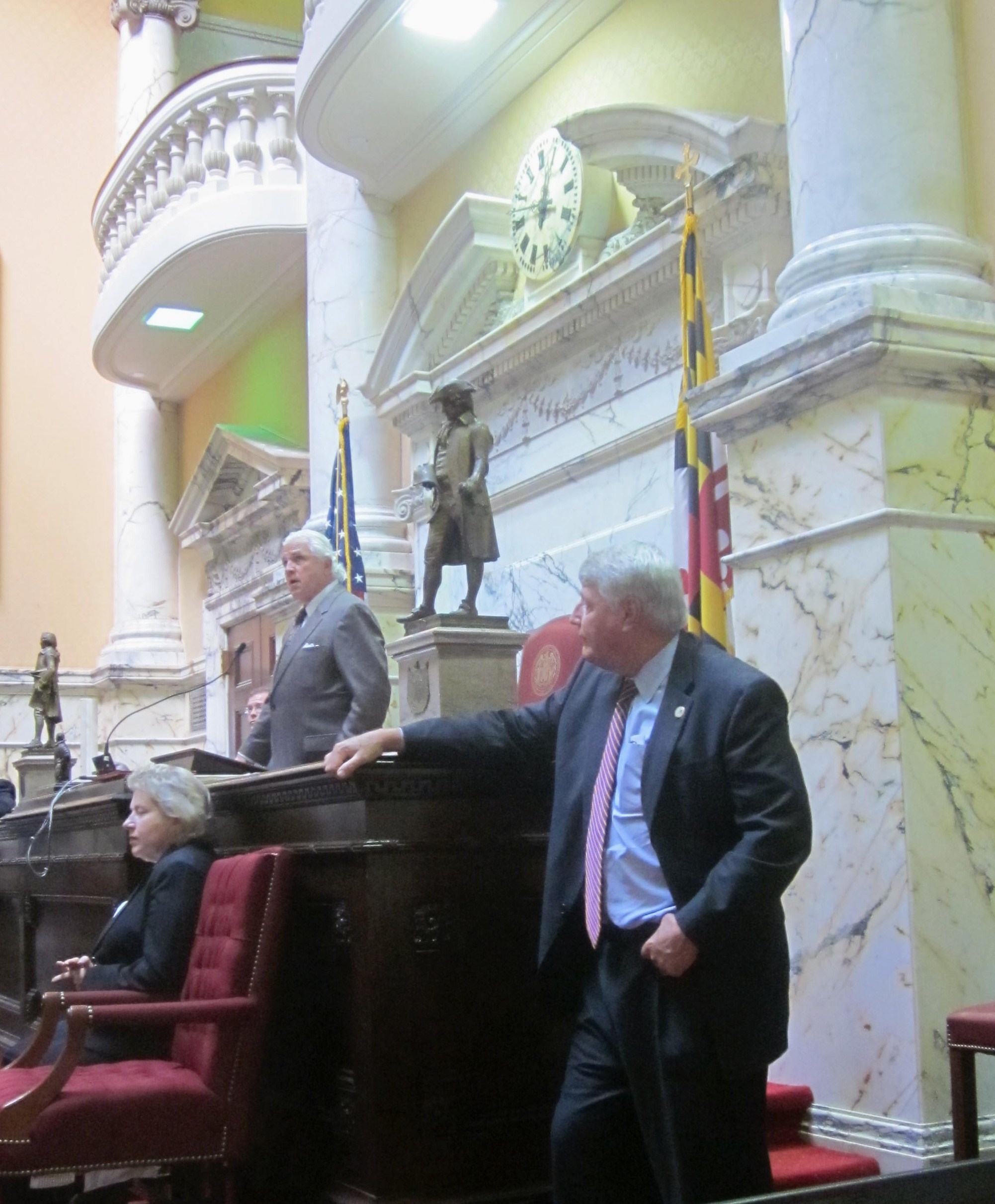By Megan Poinski
Megan@MarylandReporter.com
Emotions ran high and discussions ran long as the Board of Public Works approved $7 million in Baltimore County school renovation projects – but not a cent of it going toward air conditioning in old schools.
Comptroller Peter Franchot voted against the projects because he felt the lack of air conditioning in 65 of the 172 county schools should be the district’s top priority. He said spending money on other projects represents a “fatally flawed” thought process.
The $7 million one-time boost in school construction funds for the county came through the new state alcohol tax. It had no strict guidelines on where and how it was supposed to be spent. Since so many of Baltimore County’s schools have no air conditioning, Franchot thought it should be spent on installing it.
“These are working conditions for our children and adults that not a single one of us would put up with,” said Franchot, who has visited a number county schools.
Franchot moved that the board approve $3.5 million for Baltimore County to spend on projects it chooses, and $3.5 million for air conditioning. It was not seconded by Gov. Martin O’Malley or State Treasurer Nancy Kopp, the other two members of the board.
Parents and students testify for AC
A group of parents and students from Middleborough Elementary School testified, saying they believed that air conditioning should be the district’s priority.
However, Baltimore County Executive Kevin Kamenetz, School Superintendent Joseph Hairston, and Executive Director of School Facilities Michael Sines said that while installing air conditioning in all buildings is a priority, the cost is too high – an estimated $400 million. The projects they brought forward are all among the district’s top priorities.
“Our priorities are roofs and windows, which are year-round priority needs, as opposed to 10 days out of the year when heat is an issue,” Kamenetz said.
O’Malley and Kopp both voted to approve the projects, saying that the district should decide where it spends its construction money – not a dictate from the Board of Public Works.
Among oldest schools in state
Baltimore County’s schools are among the oldest in the state, with the average building being 50 years old, Kamenetz said. This means that many of the schools were originally built without air conditioning, and that basic items, like windows and roofs, tend to need replacing.
Kamenetz said that he prefers to make high quality and permanent improvements to schools, meaning that the $400 million price he quoted to add air conditioning to all buildings would install central air. He said that window units are not always efficient, and his understanding was that state funds couldn’t be spent on window air conditioners.
Franchot said hot classrooms present a health risk for students and staff. Offices are air conditioned, he said, classrooms should also be. Anne Arundel County Schools also successfully air conditioned all their buildings with window units for substantially less than $400 million, Franchot said.
“If there was no air conditioning in this room, and the windows could only open two inches, the heat index would be unbearable,” Franchot said.
Kamenetz responded,“The temperature in this room is probably 70, but the heat index is approaching 100 now,” referring to the tension at the meeting.
Alan Southworth, whose daughter is a 2nd grader at Middleborough Elementary School, said that his daughter’s classroom has registered a heat index of more than 90 degrees, and she has come home from school soaked in sweat and exhausted.
“This represents a moral imbalance,” he said.
Where is the money going?
Hairston said that installing air conditioning in the county’s school buildings is a priority, and he has brought air conditioning to several older buildings during his tenure. There are other things that need to happen in terms of school improvements, he said, and other uses of the district’s capital improvement funds.
O’Malley said the use of the funds should not be in the hands of the Board of Public Works.
“This is a decision that should initially be made at the county and school board level,” he said. “We do not want this board or any committee in Annapolis deciding where school construction dollars should be spent.”
The projects include:
- $3.3 million to replace some windows at Woodlawn High.
- $775,000 to replace windows, blinds and exterior doors at Glyndon Elementary.
- $610,000 to replace the roof at Randallstown Elementary.
- $510,000 to replace windows, blinds and exterior doors at Chatsworth Elementary.
- $428,000 to replace windows, blinds, and exterior doors at Cedarmere Elementary.
- $927,000 to renovate the locker room, and $200,000 to replace stage lighting at Pikesville Middle.
- $250,000 to replace lockers at Franklin High.






Comptroller Franchot’s decission to vote against this measure is commendable. Has the either Governor, or the Treasurer been in a hot classroom lately? Obviously not. As a parent and a grand parent, I know how difficult it is for our K-12 students to be successful in their educational endeavors. To add unbearable physical discomfort on to the pile of other issues is a failure of leadership! Unfortunately, Mr. Franchot has been stymied in many votes by his Board of Public Works colleagues. Maryland school children deserve better than this!